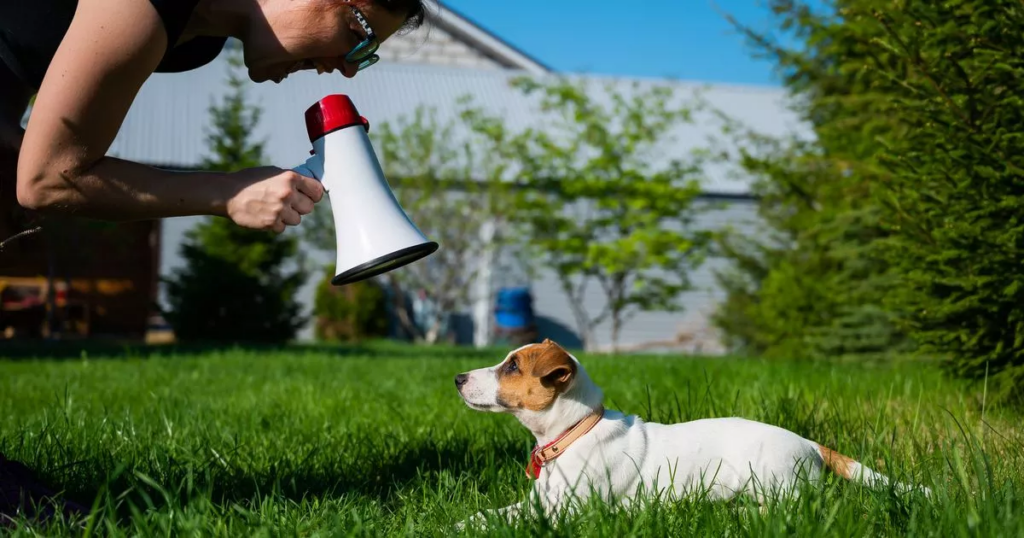While many may see it as harmless fun, an expert believes that this challenge could distress a dog.
Get the latest top news stories sent straight to your inbox with our daily newsletter
We have more newsletters
Get the latest top news stories sent straight to your inbox with our daily newsletter
We have more newsletters
An animal behaviourist has issued a warning about a popular social media trend which could trigger aggression in a dog.
The 'bark at your dog' challenge involves people getting up close to their pets and barking at them to get a reaction. Reactions can vary with some dogs barking back while others may hide away.
The trend is particularly popular on TikTok where there are 159 million #barkatyourdog tags, reports the Mirror. While many may see it as harmless fun, an expert believes that this challenge could distress a dog.
Animal behaviourist Katie Scott-Dyer has said that the challenge could be dangerous, as barking in your dog's face can cause them to react aggressively or out of character – and could even trigger them to bite. Talking to the Mirror, Katie urged people to avoid the challenge.
She said: "Please don't do the 'bark at your dog' challenge, no matter how gentle your dog might normally be. It is dangerous because dogs know we are not dogs and that we don't normally make these kinds of sounds, let alone in their personal space."
Katie explains that your dog will likely be extremely confused and curious, but it could also set off a "bite attack".
She continued: "As a registered clinical animal behaviourist, I and many in my profession, urge dog owners to stop and think about what effect this has on not only your pet, but your relationship with them. You not only risk losing their trust, but a child might be seriously injured and some TikToks have been circulating showing the injuries to the person or child barking in their dog's face.
"It's disturbing and animals as sentient creatures, with no idea of what we are doing or why, deserve better from those entrusted with their care. Is it really worth it for the sake of a TikTok?"
Katie urges pet parents to understand and learn about their dog's body language, so they can recognise when their pet is in distress and keep them safe.
Animal behaviourist Roz Pooley warns of other viral TikTok challenges that should be avoided by pet owners – from the peanut butter trend to spicy foods.
One TikTok trend involves encouraging dogs to lick peanut butter on cling film wrapped around the owner's forehead, while cutting their nails.
"If the dog does react, it's dangerously close to the person's face," Roz explained.
"If the owner accidentally catches the dog's quick [cuticle], which can be very painful, the dog may respond defensively. The dog may also be worried about having their owner's face so close to their own and snapping and biting may be their way of trying to end the interaction."
"Similar risks are at play with trends that show owners pretending to eat their dog or kissing their dog on the face," Roz said.
"Some dogs may tolerate this, but others may not, and the consequences could be lifechanging for the dog and owner."
There are many TikTok videos where owners pretend to collapse and wait for their dog to respond – but it isn't as harmless as it may seem.
"Owners need to be mindful not to put their dog in situations they struggle with. Many videos show dogs giving off a range of stress-related behaviours, such as lip licking, yawning, whale eye and avoidance behaviour," Roz said.
"Repeated pressure to engage in stressful encounters may degrade the dog's overall relationship with their owner."
When it comes to actually collapsing, your dog may not respond.
Other popular trends involve feeding dogs sour foods like lemons, or even spicy foods and chilli peppers.
Roz warned: "This could lead to dogs suffering gastro-intestinal upset or developing an aversion to foods being given by their owner, which could impact on their day to day eating habits, including treat-based training."
Some TikTokers have garnered attention by saying their dog's favourite word on a phone call to see their reaction.
"It can be confusing and even cause frustration for your dog," Roz said.
"Repeating a word may confuse your dog, particularly if it is associated with a positive situation or command, such as walk or food."
Don't miss the latest news from around Scotland and beyond – Sign up to our daily newsletter here.

